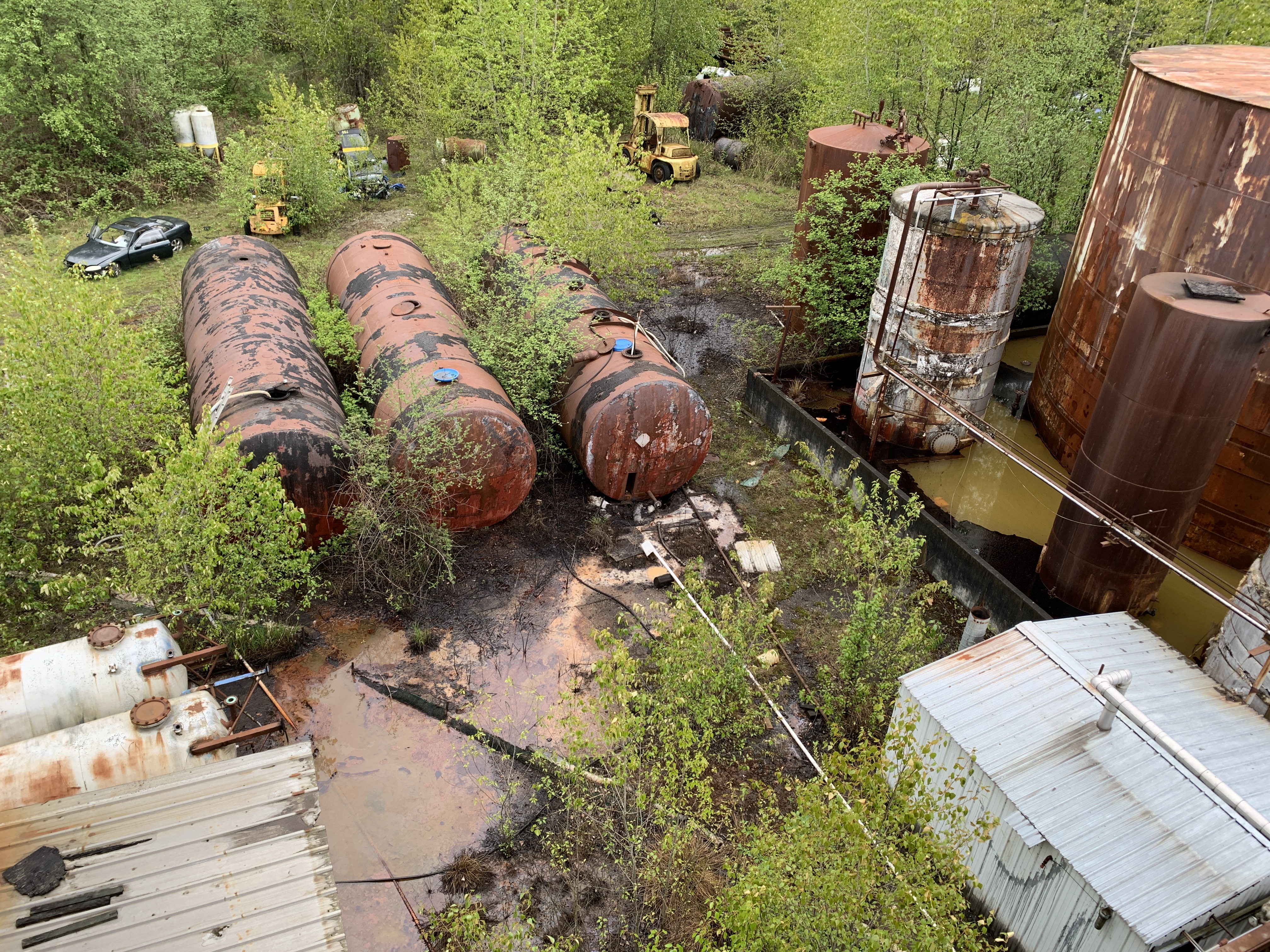For years, hundreds of thousands of gallons of oily waste, tons of solidified wastes, and numerous containers of dangerous waste accumulated at the Treoil industrial site in Whatcom County, with much of that waste stored adjacent to wetlands and a nearby creek. The potential threat those wastes posed to the environment led to two multi-million-dollar federal cleanups on the site. Today, the Washington Department of Ecology is issuing a $900,000 penalty to the property owners, Jagroop S. Gill and Campbell Land Corporation (collectively referred to as Treoil), for failure to comply with Washington’s dangerous waste laws.
The Treoil site is a 34-acre privately-owned parcel in unincorporated Whatcom County, which has been used since the 1980s for processing tall oil (liquid rosin from pine trees), refining biodiesel, and miscellaneous industrial operations. Over the decades, the property accumulated a large volume of dangerous wastes — toxic, corrosive, flammable, or reactive substances — that were left unsecured and often improperly stored. The site is located northwest of Ferndale and south of Blaine, approximately two miles east of the Strait of Georgia and four miles northwest of the Lummi Indian Reservation.
“Treoil’s poor management of dangerous waste on its property has threatened human health and the environment for years,” said Katrina Lassiter, Ecology’s Hazardous Waste and Toxics Reduction program manager. “Ecology made multiple attempts to work with Mr. Gill between 2014 and 2022 to bring the property into compliance with state laws, but he did not take advantage of these opportunities.”
Several of the tanks had secondary containment areas that were not properly constructed or maintained.
Compliance and enforcement history
The Treoil site’s hazardous waste compliance issues began in 2014, when inspectors from Ecology confirmed that large volumes of dangerous waste were not being safely managed. In 2015, Ecology issued an administrative order requiring Treoil to designate the waste — a technical term meaning to identify what type of waste it is and how it must be managed — and to dispose of it properly. Treoil appealed the order, which was upheld by the Pollution Control Hearings Board in 2016.
In 2017, an Ecology inspection found that the site was still not in compliance with Ecology’s order and that the dangerous waste storage conditions had deteriorated, posing imminent threats to the environment. At Ecology’s request, the U.S. Environmental Protection Agency (EPA) deployed an emergency response team, which removed 93,000 gallons of a mixture of tall oil and derivative wastes and 275 tons of contaminated soil, sludge, and debris, among other hazardous materials.
After the EPA cleanup, the owner refused to grant property access to Ecology and EPA. Ecology inspectors obtained court-ordered access in 2022 and found that the site conditions were similar to or worse than they were before the 2017 cleanup.
EPA performed a second cleanup in the fall of 2022, removing 97,400 gallons of oily liquid, 18,000 gallons of hazardous liquids, 3,316 tons of solidified material, and many other toxic and corrosive materials. EPA also demolished the multiple large above-ground storage tanks, containment areas, and other structures that were being unlawfully used to store dangerous waste. The costs of the 2017 and 2022 cleanup actions totaled approximately $4.3 million. This penalty does not include cost recovery for those actions.
A video of the central portion of the Treoil site in July 2022, before the autumn 2022 cleanup.
“After EPA’s cleanup in 2017, the property owner could have continued with the cleanup work and laid the groundwork for operations that managed dangerous waste safely,” Lassiter said. “Instead, conditions on the property deteriorated to the point where a second cleanup by EPA was necessary. This egregious disregard for the environment is unacceptable. It is also unfair to businesses that work diligently to comply with Washington’s dangerous waste laws.”
The $900,000 penalty is for failure to designate waste and failure to properly remove and dispose of dangerous waste from the Treoil property, for the period between Ecology’s 2015 legal order and the 2022 EPA cleanup. Treoil has 30 days to pay the penalty or appeal it to the state Pollution Control Hearings Board.


